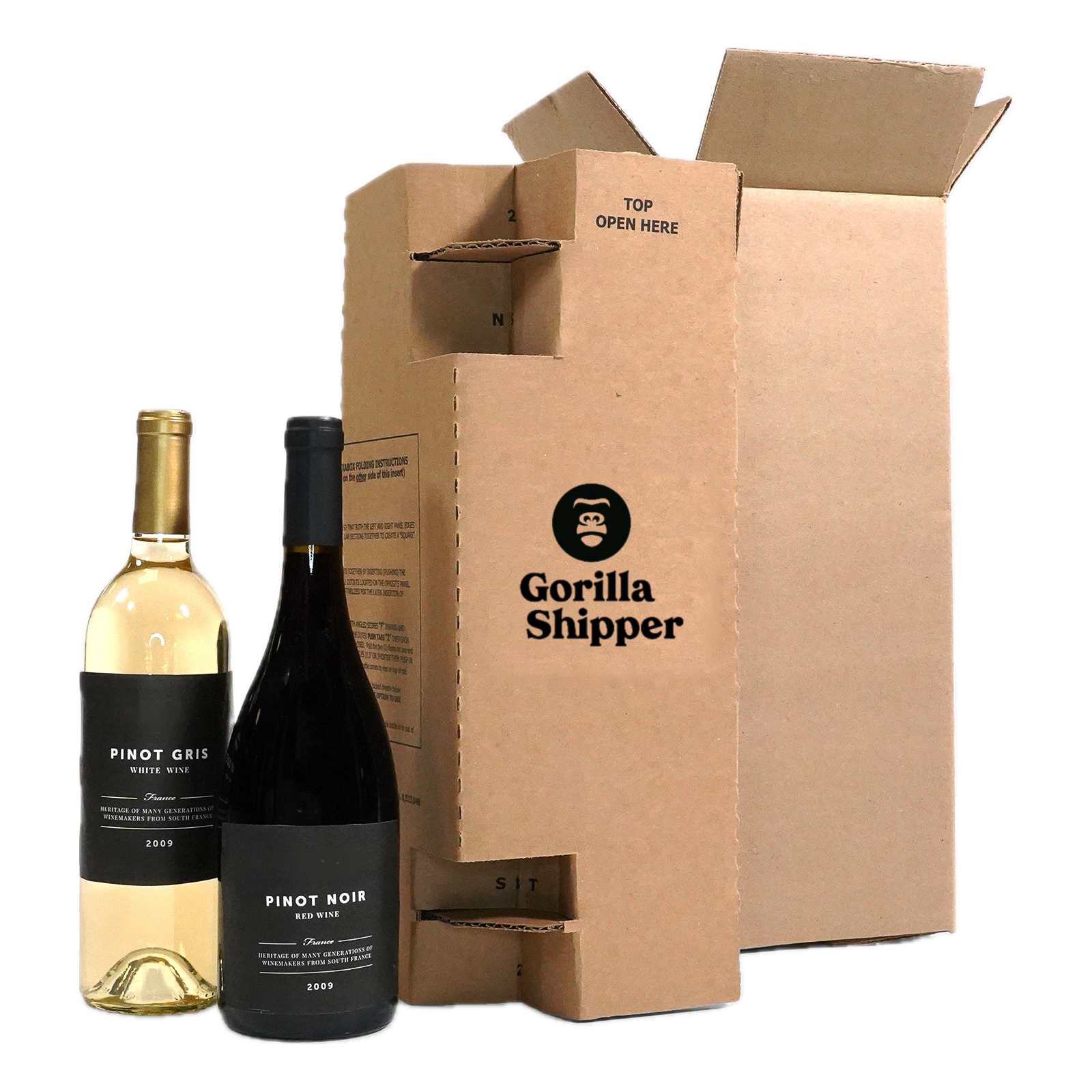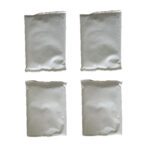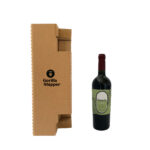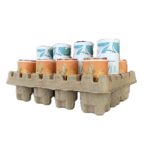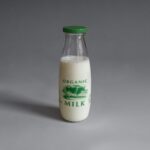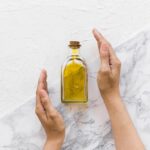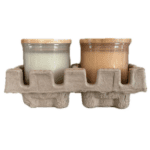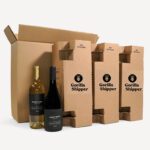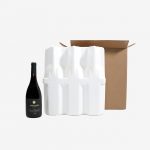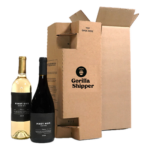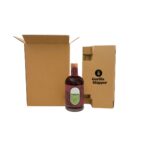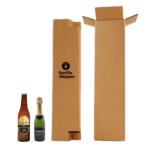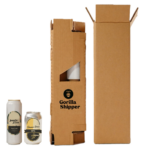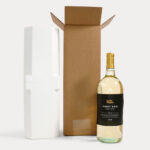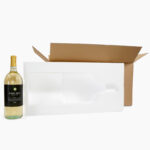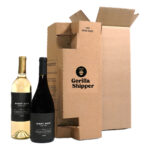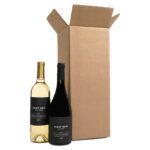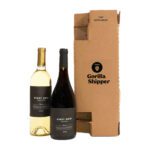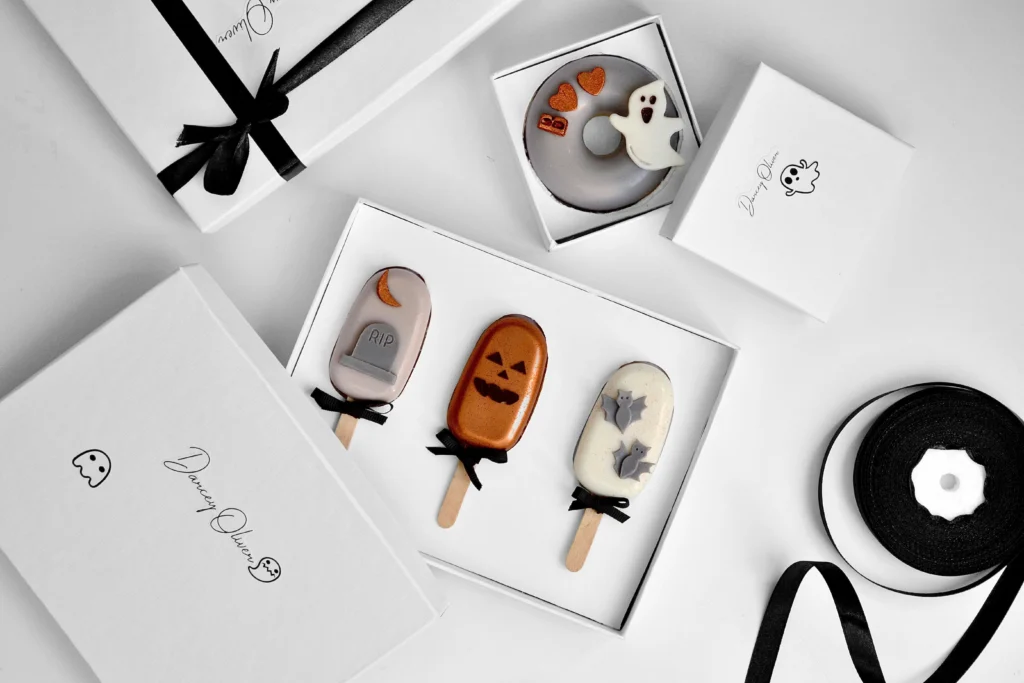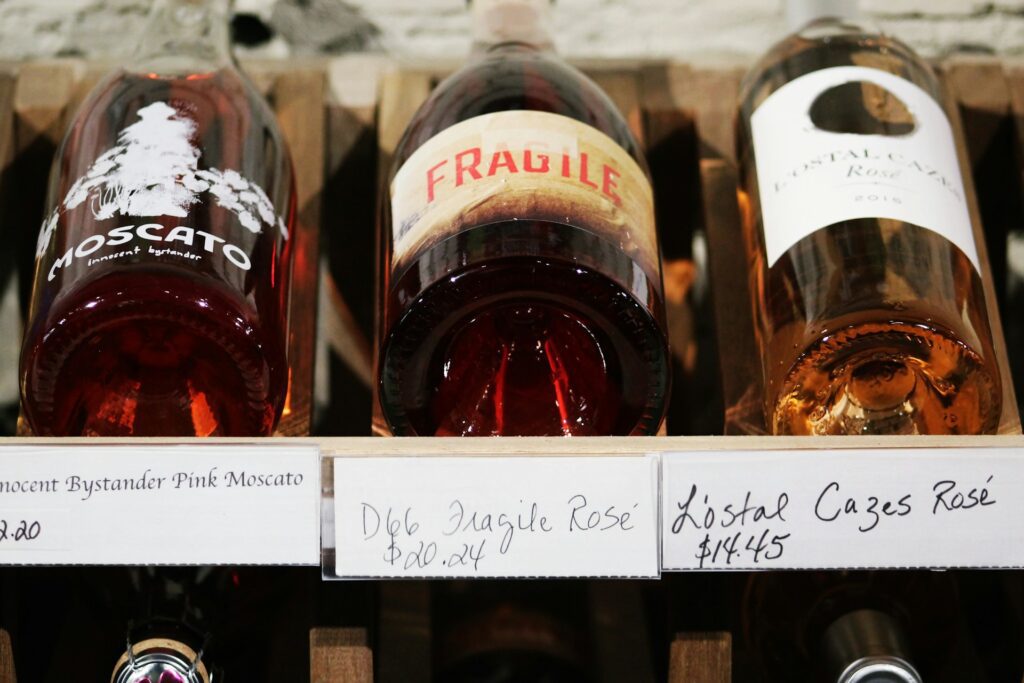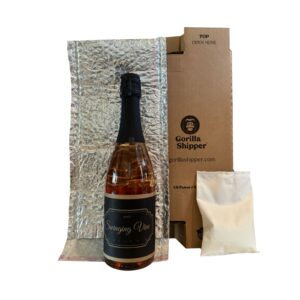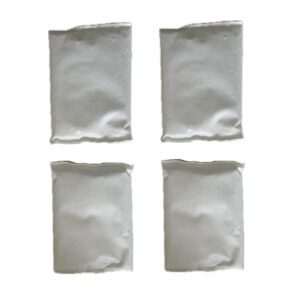Cans vs. Bottles: Which Is Best for Your Products?
Are you caught up in the age-old debate of cans vs. bottles? We understand if you feel a little bit confused.
Making well-informed decisions when comparing aluminum cans vs. glass bottles will have long-term effects. So, we compiled this unbiased comparison to eliminate any guesswork you may encounter when searching for packaging solutions your customers will love.
In this quick read, we cover the pros and cons of each option and highlight their impact on product appeal, protection, and the environment. Let’s dig in!
The Evolution of Cans vs. Bottles
Containers have been a necessity to store and transport various products for centuries. Both cans and bottles have played a significant role in this ongoing endeavor. The history of bottles dates back to ancient times, with early remnants found in China, Phoenicia, Rome, and Crete.
Initially made from materials like clay and earthenware, bottles eventually transitioned to glass manufacturing thanks to the ingenuity of the Phoenicians. Historians believe the first glass bottles came from Mesopotamia around 1500 BC.
In the context of cans vs. bottles, you’d be fascinated to learn that tin cans emerged out of necessity to feed the military in the 18th century. In 1795, the French government, led by Napoleon, offered a substantial prize to anyone who could invent a method for food preservation. Nicolas Appert won the award in 1809 for developing an airtight container.
Over the years, both cans and bottles have witnessed remarkable developments. In 1959, Ermal Fraze invented the easy-open aluminum beer can, revolutionizing the beverage industry. Shortly after, in 1965, aluminum beverage cans took center stage, becoming a popular choice for packaging.
Advantages of Cans
When comparing aluminum cans vs. glass bottles, cans offer many advantages. We’ll go over some of those below.
Extended Preservation
One significant advantage of cans is their ability to protect their contents from light and air.
Aluminum cans create a robust shield that prevents light from reaching its contents, eliminating the risk of UV exposure. Additionally, cans have a higher oxygen barrier, ensuring that foods and beverages remain fresh for an extended period.
Enhanced Sustainability
Sustainability is a key objective of every business’s long-term strategy. Cans excel in this area. They can be made from recycled materials while maintaining their original quality. Aluminum cans boast higher recycling rates than glass bottles and can be infinitely recycled.
When considering the environmental sustainability of cans vs. bottles, aluminum cans are more resource-efficient. That makes cans a more appealing choice for environmentally conscious consumers and businesses alike.
[Shop Sustainable Can Packaging]
Increased Portability
Portability is another significant benefit when comparing cans vs. bottles. Cans are often lighter and less prone to breakage compared to glass bottles. They are easy to stack and transport without worrying about cracking or shattering.
With the added convenience of pull tabs, cans eliminate the need for a bottle opener, making them even more user-friendly. Also, many modern cans come with resealable options, allowing consumers to enjoy a portion and save the rest for later, providing convenience and freshness all in one package.
Faster Cooling
Aluminum cans also have an advantage vs. glass bottles when it comes to cooling rates. Due to their efficient heat transfer properties, cans tend to cool faster in refrigerators and coolers, making them an excellent choice for products that require rapid chilling.
The thin walls of aluminum cans allow for quicker temperature changes, ensuring that beverages or perishable items inside reach the desired coolness in less time compared to other containers. This not only saves energy and time but also offers consumers a refreshing experience in a shorter wait period.
Advantages of Bottles
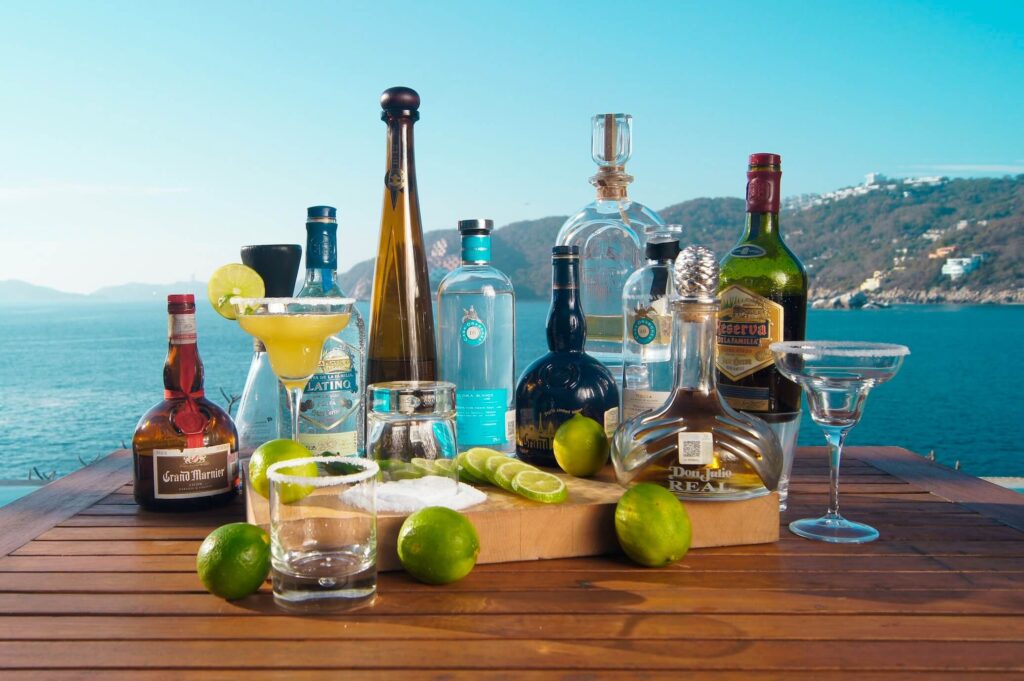
While cans offer numerous advantages, one should not overlook the unique benefits that bottles, especially glass ones, bring to the equation. Below, we’ll discuss them in detail.
Aesthetic Appeal
One of the most significant advantages of bottles is their aesthetic appeal. When comparing cans vs. bottles, glass bottles have a premium and traditional feel.
The traditional image associated with bottles often creates an impression of a high-quality and authentic product. That can be particularly important for brands that want to convey a sense of luxury and craftsmanship.
[Shop Premium Bottle Packaging]
Taste Preservation
Taste preservation is another significant benefit of using glass bottles. Glass is nonporous and impermeable, ensuring no interaction between the container and its contents. As a result, the flavor of food and beverages remains unaffected, and there is no risk of unpleasant aftertastes.
Additionally, glass bottles are chemically inert, which means they don’t react with the beverages or foods they hold. This non-reactivity ensures that acidic beverages, like certain fruit juices or carbonated drinks, retain their original taste profile without any chemical alterations over time.
Greater Versatility
A container’s versatility is another point you should keep in mind when comparing aluminum cans vs. glass bottles. Bottles come in various shapes and sizes, providing ample opportunities for branding and storytelling. They serve as a visual representation of their contents, communicating a message to consumers browsing store shelves.
From elegant and delicate designs to sturdy and timeless structures, glass bottles can effectively convey the value and essence of the product they hold. The transparency of glass bottles showcases the purity, texture, and color of the product inside. This visual appeal can be a significant factor in consumers’ purchasing decisions.
Glass bottles also have the unique ability to accommodate a diverse range of closures, from cork stoppers to metal caps to intricate glass tops. This variety of closure options allows for further branding possibilities and functional adaptations suited to the product’s needs.
Disadvantages of Cans
While cans offer several advantages, there are potential drawbacks associated with their use. Here are a few concerns to be aware of in the cans vs. bottles debate.
Excessive Pollution
The smelting process of aluminum releases sulfur dioxide and nitrogen dioxide into the atmosphere, contributing to smog and acid rain. To acquire the minerals needed to produce aluminum cans, manufacturers must engage in strip-mining of bauxite ore to obtain sufficient alumina.
The extraction of aluminum from bauxite produces toxic waste known as red mud, which can lead to environmental contamination and health issues for nearby communities.
Leaks and dam breaks in storage ponds have resulted in destructive incidents, burying villages under corrosive sludge and transforming rivers into polluted dead zones filled with toxic heavy metals.
Energy Consumption
In the debate of aluminum cans vs. glass bottles, it’s essential to note that not all cans are recycled. Many cans end up in landfills, contributing to the need for new materials. The production of aluminum cans requires energy-intensive processes, leading to carbon emissions and environmental impact.
The refining process for aluminum consumes a significant amount of energy. Approximately 15 MWh of electricity is required to produce one ton of aluminum. That’s as much as a two-person household consumes in five years.
Due to high demand, production relies on access to abundant and inexpensive electricity, often leading to the construction of large-scale, fossil fuel-based power plants. These power plants release large amounts of greenhouse gasses, contributing to global warming and climate change.
Health Concerns
When considering between cans vs. bottles, it’s vital to note that cans corrode and impart a metallic taste to foods. To prevent this, many manufacturers use BPA to coat the inside of cans. Bisphenol A, or (BPA), is an industrial chemical that’s been in use since the 1950s.
BPA has been of concern to public health agencies, scientists, and the general public due to its potential health hazards. BPA is a known endocrine disruptor, meaning it can imitate and disrupt the production of hormones in both men and women. This can cause fertility issues, metabolic disorders, as well as breast and prostate cancer.
The concern with BPA is so alarming that in 2012, the U.S. Food and Drug Administration (FDA) prohibited the usage of BPA in baby bottles and spill-proof cups. In 2013, they extended the ban to include infant formula packaging materials.
Disadvantages of Bottles
Despite their popularity, glass bottles have many drawbacks that may warrant considering alternative packaging options. Here are a few disadvantages to think twice about.
Fragility
It’s essential to consider the durability of each material when deciding between aluminum cans vs. glass bottles. While elegant and often preferred for its ability to maintain the purity of taste, glass has inherent fragility that can’t be overlooked. The very nature of glass makes it susceptible to cracks, chips, and complete shattering from even minor impacts.
For manufacturers and retailers, the breakage of glass bottles can lead to added costs. There’s the direct cost of the lost product, but also potential additional expenses related to cleanup, waste management, dissatisfied customers, and even liability issues if a customer or employee were to get injured from the broken glass.
[Shop Sturdy Bottle Packaging]
Higher Transportation Costs
When deciding between cans vs. bottles, you must not overlook the financial implications of each choice. Compared to aluminum cans, glass bottles are often bulkier and heavier. This added weight increases transportation costs as more fuel is consumed to transport the same quantity of product.
Additionally, the fragility of glass bottles requires careful handling and packaging, often necessitating extra protective material. This not only raises freight costs but also impacts storage, as they take up more space per unit. So, from a logistics perspective, aluminum cans are more cost-effective vs. glass bottles.
Environmental Concerns
While glass is sustainable, recycling is challenging for waste management facilities. Most manufacturers require it to be sorted and recycled by color to produce high-quality bottles and jars. However, sorting can be difficult, especially when handling broken shards. Due to the risk of injury, recyclers find separating impractical, and the entire stream often ends up in landfills.
Moreover, the energy required to melt and reform glass for recycling can be relatively high, especially compared to materials like aluminum, which can be recycled with less energy expenditure. The high temperatures needed to process glass can make its recycling less energy-efficient and environmentally friendly than one might assume.
Consumer Perception and Cost Implications
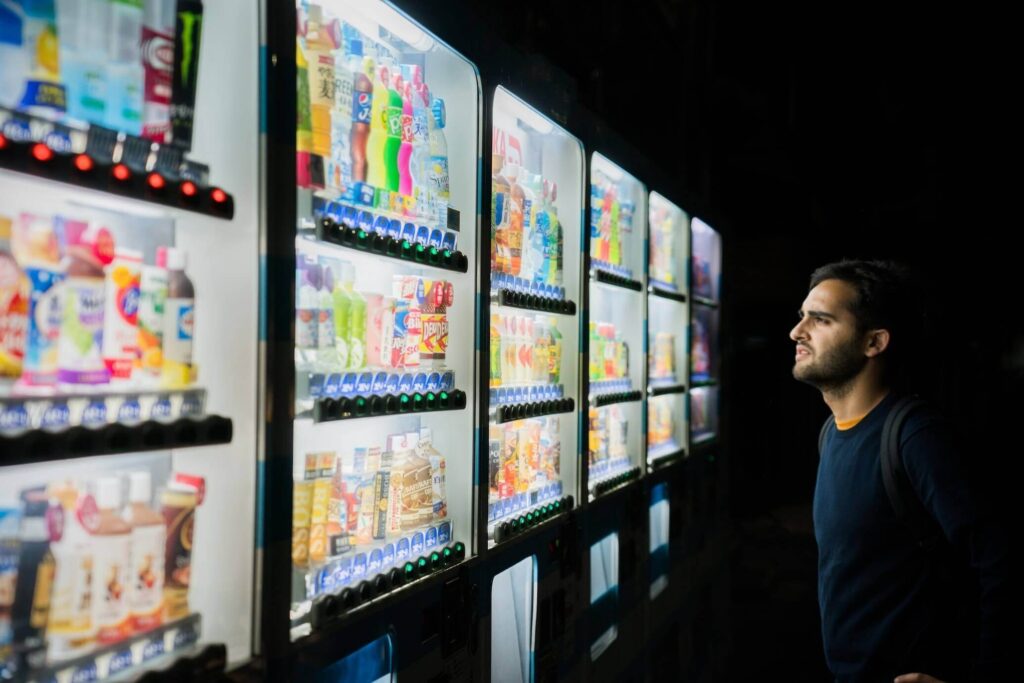
Consumer perceptions heavily influence preferences and choices when comparing aluminum cans vs. glass bottles. Distinctive packaging design and strong brand association are essential elements that can increase repeat purchases and profitability. The exterior packaging helps develop brand loyalty and makes your products identifiable among the competition.
When evaluating cans vs. bottles, consider your target avatar to evoke a positive effect on consumer brand experience while keeping costs in check. Aluminum cans may be better for convenience and portability and offer lower transportation costs. However, glass bottles convey luxury and product quality through their weight and feel.
Whichever route you choose, remember clever packaging design and branding enhance desirability for both options, influencing consumer choice based on values and lifestyle. Your environmental footprint will be under scrutiny. So, consider your environmental impact and
marketing strategies when making sustainable packaging decisions.
Protect Your Cans and Bottles with Gorilla Shipper
Choosing between aluminum cans vs. glass bottles will require time and thorough evaluation. You must study your product and target market to determine which material is the right choice for you. Whether you go for cans or bottles, we have the packaging solutions you need to protect your products and reduce costs.
At Gorilla Shipper, we offer Hexabox, pulp, and foam packaging solutions for cans and glass bottles of all sizes. Our Hexabox and pulp shippers are made from recycled materials and are biodegradable. All our products are ISTA 6-FEDEX-A test certified. And the best part? The more you buy, the more you save!
Contact us to learn more about our can and bottle packaging solutions.

